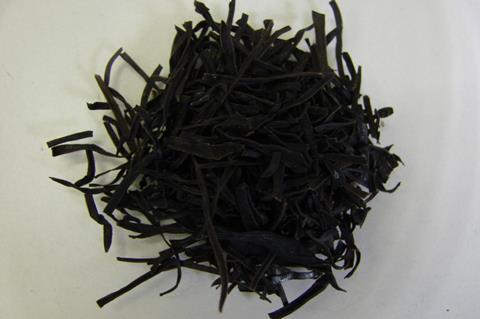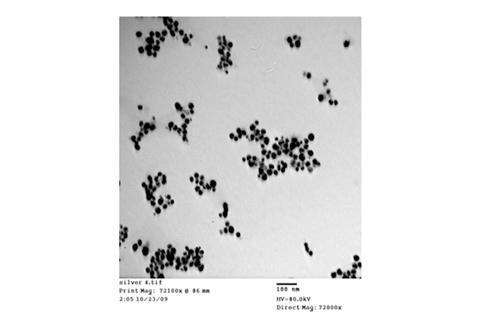An edible seaweed could provide a potential environmentally friendly source of silver nanoparticles for antibacterial and anticancer applications.
Scientists have discovered that a brown alga, Eisenia bicyclis or Arame, which is already used for human consumption, could provide an environmentally friendly source of silver nanoparticles, which are increasingly used for medical, healthcare, food, consumer and industrial purposes due to their unique physical and chemical properties.
The discovery by scientists at Sohag University in Egypt is detailed in ‘Eco-friendly synthesis of silver nanoparticles using Eisenia bicyclis seaweed, their antimicrobial and anticancer activities’ which appears in Letters in Applied Microbiology, an Applied Microbiology International publication.
Edible seaweed
Corresponding author Dr Marwa Obiedallah said the paper introduces a novel source for producing silver nanoparticles, the brown alga Eisenia bicyclis or Arame, which grows along the coastlines of Korea and Japan, and belongs to the family Lessoniaceae of the order Laminariales.

“It is considered an eco-friendly source as it’s used for human consumption in the first place in the Japanese community. Moreover, it’s a very rich source of proteins, sugar, fatty acids, pigments, minerals, and antioxidants,” Dr Obiedallah said.
“This algae can be obtained throughout the year, harvested and dried for several uses. Its availability, safety, and richness in bioactive compounds make it suitable for use in scientific research. Thus, it was selected as a reducing agent to biosynthesize stable AgNPs (18.5 ± 1.2 nm).”
Producing nanoparticles
Using 1g of dried E bicyclis, the team found they were able to produce 50 mg AgNPs under certain conditions.
These conditions require a reaction temperature of 90C, a seaweed extract concentration of 0.4%, and an AgNO3 concentration of 0.5 mM within 20 min. The activity of the biosynthesized silver nanoparticles was evaluated against some human clinical pathogens. They demonstrated antibacterial activity against all tested bacterial strains (Escherichia coli ATCC 8739, Klebsiella pneumoniae ATCC 13883, Bacillus subtilis ATCC 6633, and Staphylococcus aureus ATCC 6538).

The team also observed a concentration dependent growth inhibition of in vitro cultured breast cancer cells treated with AgNPs and overexpression of p53 and Bax, and underexpression of Bcl-2. Formed AgNPs by E bicyclis provide a potential source that could be used for antibacterial and anticancer applications.
“Although the preliminary results about antibacterial and anticancer applications we showed are very promising, a deep understanding of such complicated mechanisms is required to explain the actual inhibitory mechanism of AgNPs against bacterial pathogens,” Dr Obiedallah said.
“Also, the cytotoxic nature of AgNPs against breast adenocarcinoma cell lines may have therapeutic implications in the future.”
‘Eco-friendly synthesis of silver nanoparticles using Eisenia bicyclis seaweed, their antimicrobial and anticancer activities’ appears in Letters in Applied Microbiology.
Dr Obiedallah can be contacted at m.obiedallah@science.sohag.edu.eg.







No comments yet